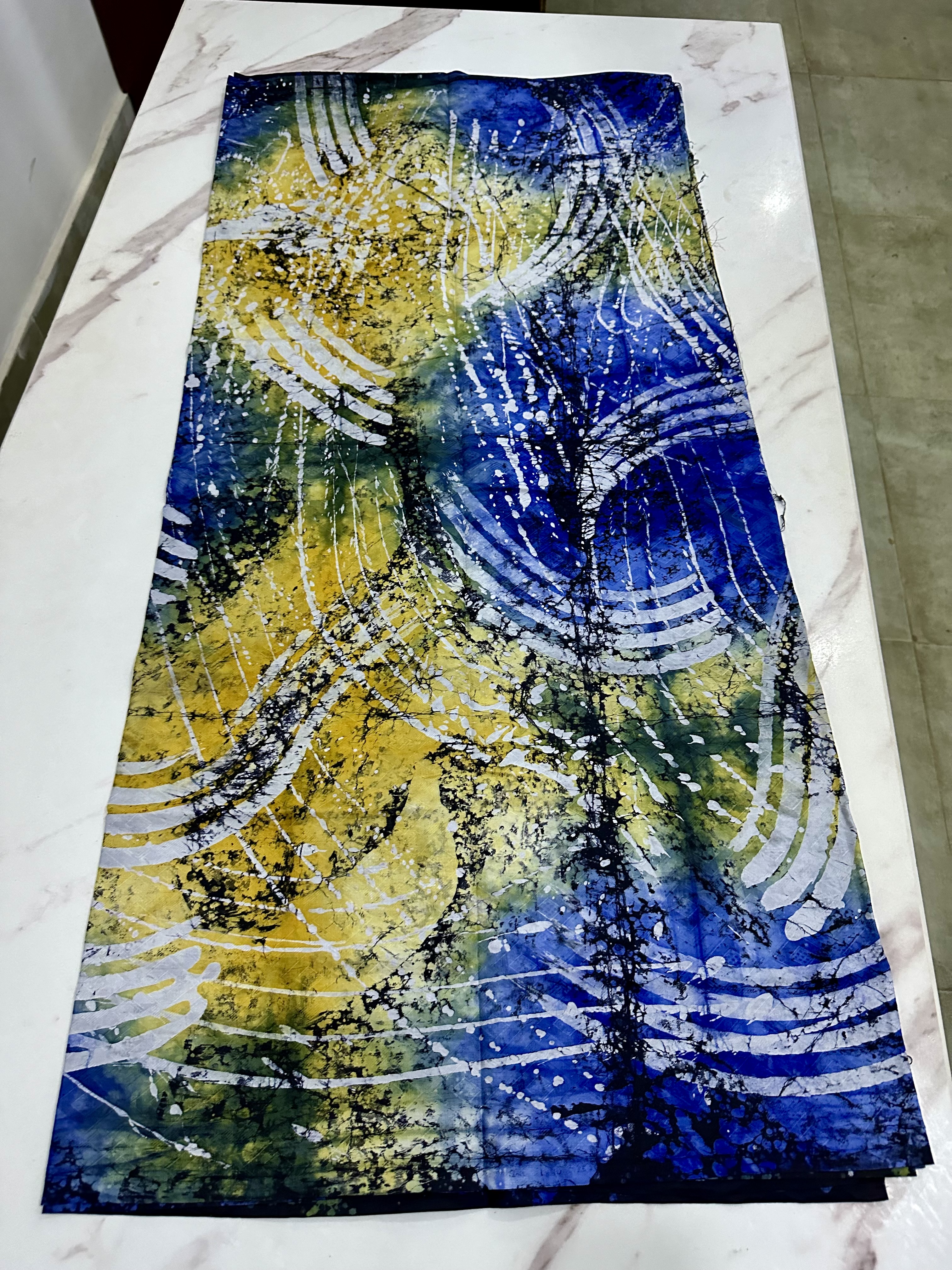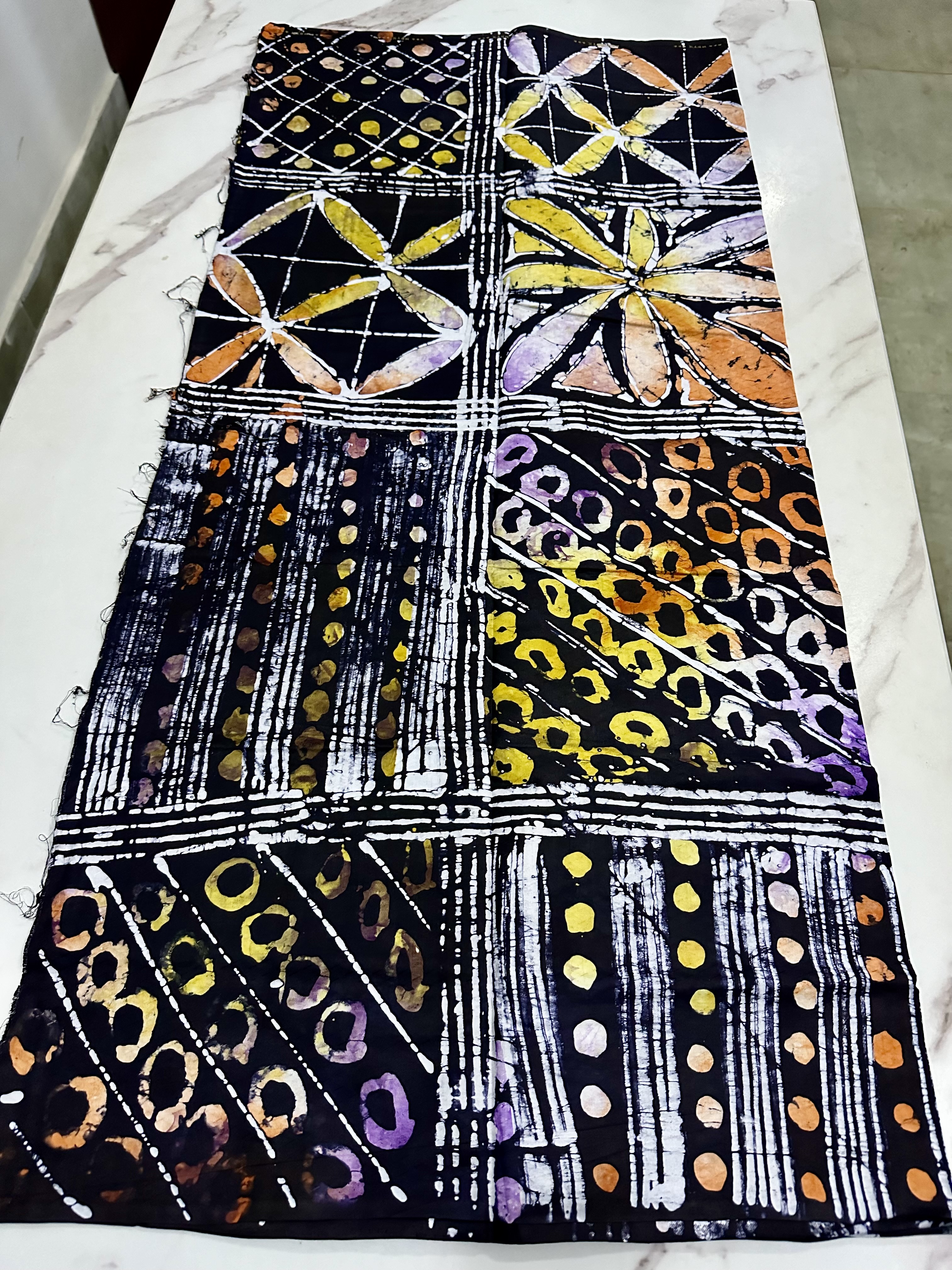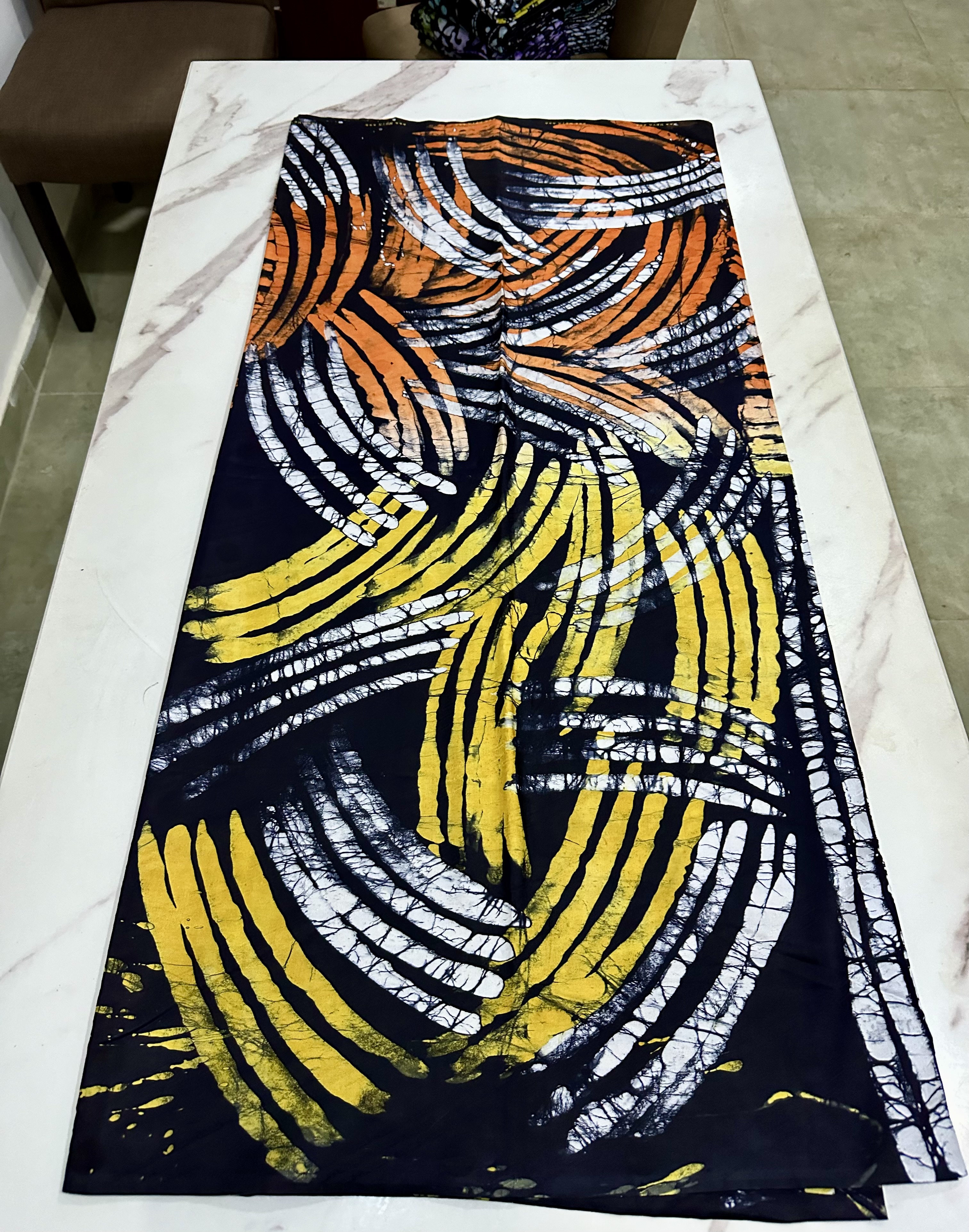Analysis of the Adire Market in Nigeria.

The Adire market in Nigeria has significant growth potential due to rising local and international demand. However, challenges such as mass production of fake fabrics (Adire inspired fabrics which is known as Adire machine prints), low government support, and limited global awareness hinder its full potential. Below is a breakdown of the opportunities, challenges, and future outlook of the Adire industry in Nigeria.
1. Market Size & Demand
- The Nigerian textile industry is worth billions of naira, and Adire is one of the fastest-growing sectors.
- There is increasing patronage from fashion designers, corporate institutions, and individuals looking for authentic African fabrics.
- The demand for African textiles, including Adire, is growing globally, especially in Europe, the U.S., and the Caribbean.
2. Opportunities in the Nigerian Adire Market
A. Local Market Expansion:
- Many Nigerians are now embracing Afrocentric fashion, increasing demand for Adire in casual and corporate wear.
- Government institutions, schools, and organizations are adopting Adire for uniforms, creating bulk purchase opportunities.
- Luxury Adire designs are now used in high fashion, interior decor, and even shoes and bags.
- With platforms like Etsy, Shopify, and Instagram, Nigerian Adire makers can sell directly to global buyers
- African fashion weeks in London, New York, and Paris are embracing Adire, boosting its global reputation.
- The AfCFTA (African Continental Free Trade Agreement) provides opportunities for Nigerian Adire businesses to expand into other African markets.
 C. Training & Skill Development:
C. Training & Skill Development:- Adire making is becoming a sustainable job creation sector, especially for women and youth.
- Online and physical workshops are in high demand, and trainers can earn substantial income by teaching Adire skills.
3. Challenges In The Adire Market.
A. Mass Production & Fake Adire Prints:
- Machine-printed Adire fabrics from China and other countries are flooding Nigerian markets, making it harder for handmade Adire to compete.
- Many customers buy cheap, low-quality alternatives, reducing sales for authentic Adire artisans.
- Unlike Ankara, which has strong distribution networks, Adire lacks government backing for mass production and exportation.
- Inconsistent power supply affects production, increasing costs for small-scale artisans.
- Many Nigerians still view Adire as a “traditional” fabric rather than a versatile, modern textile.
- There is low investment in branding and digital marketing, limiting exposure for Adire businesses.
4. Future Outlook & Growth Strategies.
The Adire market in Nigeria has huge potential but needs strategic actions to thrive. Here’s what can be done:
A. Branding & Innovation:
- Position Adire as a premium, luxury fabric suitable for both casual and corporate wear.
- Innovate new modern designs, patterns, and color variations to attract younger audiences.
- The government should implement policies to restrict the importation of fake Adire fabrics.
- Investment in textile hubs, training programs, and export incentives will help Adire artisans grow.
- Adire businesses must leverage e-commerce, social media marketing, and influencer collaborations to reach global customers.
- Creating an Adire marketplace platform where artisans can sell directly to buyers will increase sales.
The Nigerian Adire market is growing but needs more structure, branding, and government support to compete globally. If properly harnessed, it can be a major revenue-generating industry, creating jobs and boosting Nigeria’s economy.
By: Funmi Akin-Ajayi Feb 7, 2025New Arrival









